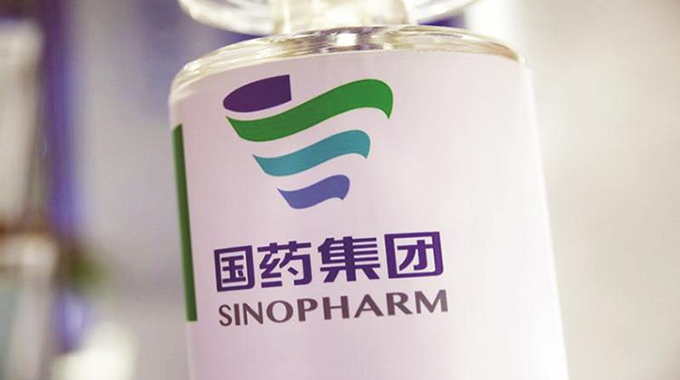Source: No one is safe until everyone else is safe | The Herald
Ruth Butaumocho
African Agenda
“It is deeply unjust that the most vulnerable Africans are forced to wait for vaccines while lower-risk groups in rich countries are made safe.”The above tweet, a near war-cry came from the World Health Organisation (WHO) regional director Matshidiso Moeti in January on realising that Africa was in danger of being left behind in the roll-out of Covid-19 vaccines, as other countries inked bilateral deals, driving up prices in the process.
By then, Covid-19 vaccinations had already kicked off in more than 50 developed nations, that were busy inoculating their populations, after buying the vaccines straight from the manufacturers.
This was despite yet another warning from WHO boss, Dr Tedros Adhanom Ghebreyesus that the world faced “catastrophic moral failure if Covid-19 vaccines were not distributed fairly”.
When all the procurement was taking place in the West, there was not a spectre of hope for the African continent to get vaccines.
Africa’s hope lay in regional and international vaccination procurement schemes. One of the schemes that Africa was patiently waiting for was the global Covax initiative, under which countries pooled their resources to support the development of effective vaccines with a view to ensuring that everyone got a fair supply.
The People’s Vaccine Alliance, a non-governmental organisations network, reports that rich nations, representing only 14 percent of the world’s population, had by January bought up more than half of the vaccines.
On the other hand, Africa was at the tail end of the queue.
Following a deafening silence on Africa’s vaccination strategy, as member countries frantically searched for solutions on how to access the vaccines, China stepped in and donated vaccines to the first three African countries — Zimbabwe included — and pledged to assist more countries in accessing the doses.
Equatorial Guinea and Egypt also received the Sinopharm vaccines from China early this month.
In a significant step forward for the African region, the donation from the Chinese has put the continent on a positive trajectory because it is now able to inoculate its frontline workers in the health sector and other critical sections of the economy.
The donation affirmed the Asian country’s commitment to further cement existing relations with Africa. Several African countries have often found comfort in China at various platforms, mainly at the economic front.
Before the vaccine roll-out programme, China sent medical teams to different countries, including Zimbabwe.
It paired up Chinese and African hospitals, provided much-needed medical supplies and pledged to assist Africa on vaccines, a promise it has fulfilled.
China’s swift response to Africa’s predicament is yet another demonstration of the long bond of friendship and solidarity between the two.
With Africa expected to vaccinate at least 680 million people to achieve herd immunity, according to the Africa Centre for Disease Control and Prevention, there is strong room for China to show that it is Africa’s all-weather friend by extending its vaccines to other countries which are equally vulnerable to this pandemic.
Already, optimism is high that Beijing will do all it can to lift Africa from its precarious position in the battle against Covid-19, in light of the infectious variant that has to date killed many people across the continent in the last few months.
Having lost more than 100 000 people since the first case of Covid-19 was detected in Egypt early last year, Africa needs to move ahead and resuscitate the economic activities that had in the last two years slumbered owing to the impact of the virus.
Already, several countries are under lockdown and are observing some of the World Health Organisation’s regulations such as social distancing and decongestion of workplaces as part of global efforts to rein in the virus.
Though effective, those measures have seen a reduction in economic activities, mostly in the informal sector, where the majority eke out a living.
All eyes are now on the vaccines, which are expected to play a crucial role in reducing new infections and prevent deaths.
In Zimbabwe, inoculations started in earnest at the beginning of this week, where hundreds of frontline workers in the health sector started getting the jab from the 200 000 Sinopharm vaccines donated China, while waiting for 600 000 more vaccines bought by the Government.
The Chinese Embassy announced yesterday that 200 000 more doses of the Sinopharm vaccine will be donated to Zimbabwe.
The consignment kick-started the Government’s accelerated efforts to immunise at least 10 million for free in the coming months.
But because of the procurement challenges, not everyone will be vaccinated at once, and some might miss after all.
That alone calls for continued adherence to WHO regulations of masking up, social distancing and practising proper hygiene at all times.
Zimbabwe has so far avoided the worst of the coronavirus storm, because the Government had to take agonising choices that included dusk-to-dawn curfews that came with several lockdown restrictions since the first case of Covid-19 was discovered in the country last year in March.
It is the same choices that the country might need to continue making if we are going to keep Covid-19 at bay, while the Government is doing all it can to secure more vaccines for the country’s population.
The pandemic is not yet over and that alone requires the citizens to be astute and be vigilant in the fight against the virus.
While it is true that Covid-19 has presented a “new normal”, it still remains a threat. Even in the face of hope, thanks to an avalanche of Covid-19 vaccines, people should continue to capitalise on their shared values and guard against further spreading of Covid-19. After all, no one is safe until everyone else is safe.
Newer Post
Chebundo, Timveos join Zanu PF Older Post
Youths relive war memories in song 
COMMENTS